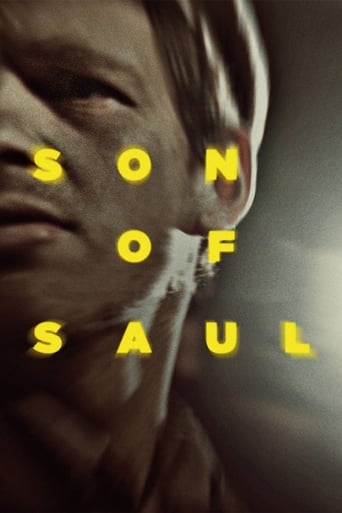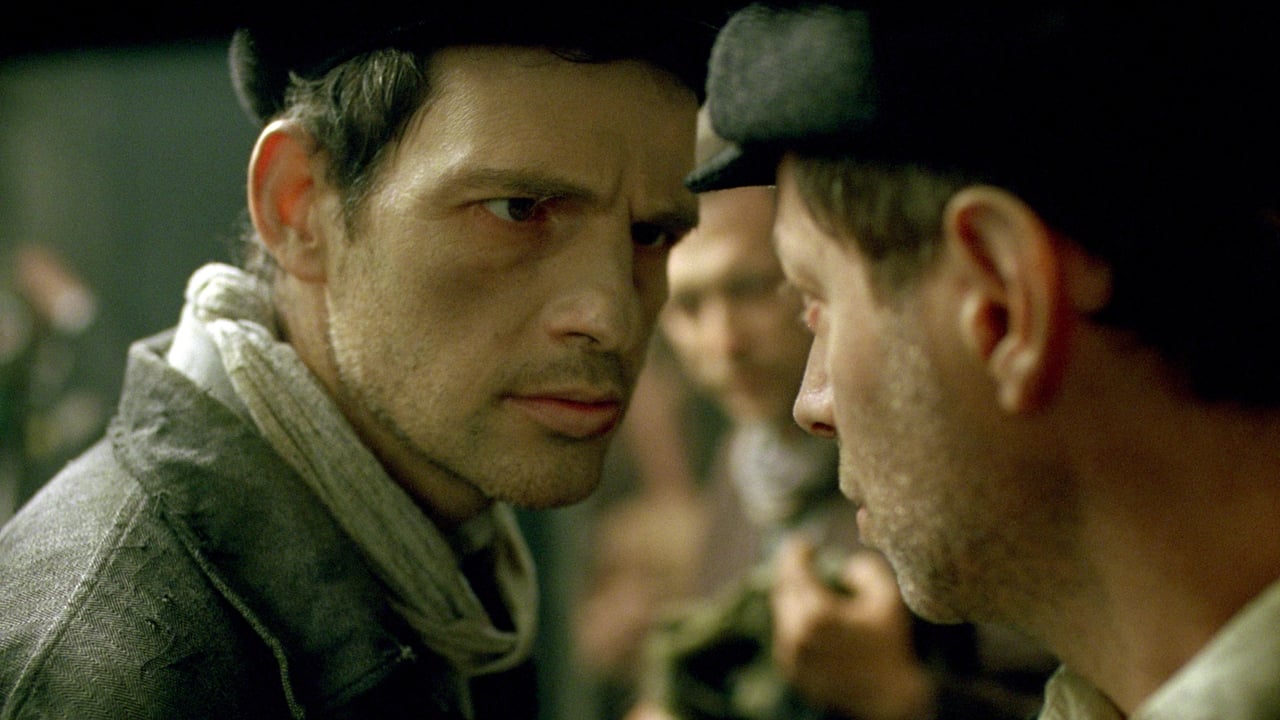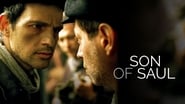nepeta
I found this film offensive. In a concentration camp where people were being sent to the gas chambers a guy will focus his efforts in burying a corpse and risking his life and other people's lives to achieve his goal. Meanwhile other prisoners are busy with an escape plan and he spoils part of the plan because of his stupid obsession. In his situation his priorities should be: stay alive, escape and help to save other people's lives but his aim was to bury a cadaver only because of his stupid beliefs.
rodrig58
It made me think of "Schindler's List"(1993) but this "Son of Saul"(2015) is different. It's as good as Spielberg's film, maybe even better. Love for your own child, even dead, makes you do unusual things, to defy death that awaits for you anyway, inside or off the concentration camp. A film excellently played, filmed, directed.
lasttimeisaw
The debut feature film from Hungarian filmmaker László Nemes, SON OF SAUL wins Oscar's BEST FOREIGN LANGUAGE PICTURE in 2016, it is a hard-nosed Holocaust drama takes a unique focal point of one particular Sonderkommando (Nazi's death camp inmates who are chosen to dispense with gas chamber victims), the Jewish-Hungarian Saul Ausländer (Röhrig, sometimes feels stilted but overall quite an endeavor from a non-professional).From the word go, Nemes' discreet modality of entirely putting Saul at the center stage grandly comes home to the audience, starting from an out of focus shot slowly clings to its object Saul, our visual cynosure, then meticulously follows his steps (a back-of-his-head vantage point) and only shows us what is happening strictly from his prospect, it is an intriguing and contained ploy, on one hand, the film waives a holistic view of the happenings, for fear that the uncompromising atrocity it scrupulously re-enacts is too much for viewers to bear, thus mercifully we are only presented with glimpses through Saul's constant movement, who seems to be strung-out yet benumbed, most of the time, he keeps to himself; on the other hand, the skimpy scenes are no less soul-stirring, the gas chamber, piles of naked cadavers, incinerators, dumping truckloads of ashes, the rampant slaughter, the whole package is there (a sterling job for its production designer, the Hungarian architect László Rajk Jr.), selectively materializes predicated upon Saul's presence, one indubitable merit of Nemes' picture is it has miraculously re-created a reliving the horror experience that possibly errs on the side of being so vicarious that one is instinctively repelled and tries to turn away from it. That is an inextricable dilemma of any film, cinema aims to engross, however, when the subject it depicts is inherently repugnant and horrendous to a fault, as a result we are often mired between these two disparate states, a self-inflicted masochism. Is there any redeeming grace to temper the milieu's inhuman brutality and its overlaying smothering? Yes, there must be, it is Saul's spur-of-the-moment decision to carry out a proper Jewish burial for a boy who dies after barely surviving the gas chamber and whom he claims to fellow inmates is his son (is it true? the answer is deliberately moot, but one inclines to nay, which makes Saul's action more perverse and improbable, maybe he thinks the boy's ephemeral survival is a numinous call for his action), so the imperative mission for him is to find a rabbi to officiate the burial, meantime, chivvied by Abraham (Molnár), another Sonderkommand, he is also embroiled into an impending uprising as their last attempt to scupper their imminent doomsday, but Saul is halfhearted. Granted that Saul's intransigency gravely compromises his contribution to the nobler/righteous cause (to an extent that he will lose those precious smuggled gun powders, and volunteer his own demise just to find a rabbi during the infernal pandemonium), the film perilously threats to negate its own raison d'être, which is to retain an infinitesimal trace of faith and courage to survive under such egregious monstrosities in the manifestation of defiance, Jews are being decimated, but their culture and rituals are deathless. In the end of the day, Saul's effort is futile, the rabbi he rescues is a sham, the body fails to be pushing up the daisies and when the camera finally veers from Saul after his hard-earned smile, what manifests is not a glint of hope but a consolation or a surrender only too soon will be rendered insignificant, ambiguity again takes an upper hand in this harrowing exploitation of the Holocaust, for all its calculated aesthetics, its impact is confounding and its laurels are undue.
Lee Eisenberg
I had heard loosely of Sonderkommandos before watching László Nemes's "Saul fia" ("Son of Saul" in English), but the movie takes an unusual approach to it. This is one of the only movies that I've seen in which almost all the focus is literally on one person, with the background blurred. This serves to emphasize the desperation of the protagonist, a Sonderkommando in 1944 Auschwitz, who wishes to give his son a proper burial. Indeed, we see murdered bodies, as well as the atrocities getting committed by the Nazis, but Saul himself is essentially the window into this horrible setting.It's an outstanding movie in every way. While much of the movie may seem slow, it's like this so that the characters can develop. It grows especially intense during the final fifteen to twenty minutes. But the truth is that the whole movie is excellent. It deserved the awards that it won.Another Hungarian movie dealing with the experience of the Jews during this period is 1983's "Jób lázadása" ("The Revolt of Job" in English), about a Hungarian boy adopted by a Jewish couple.



 AD
AD






